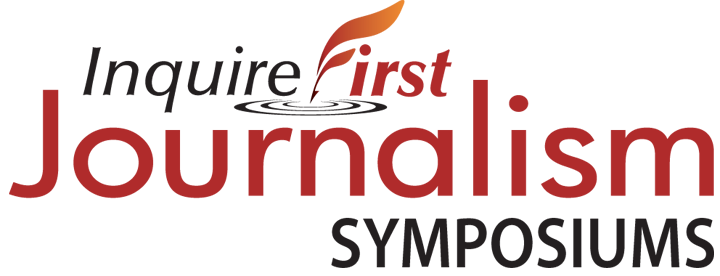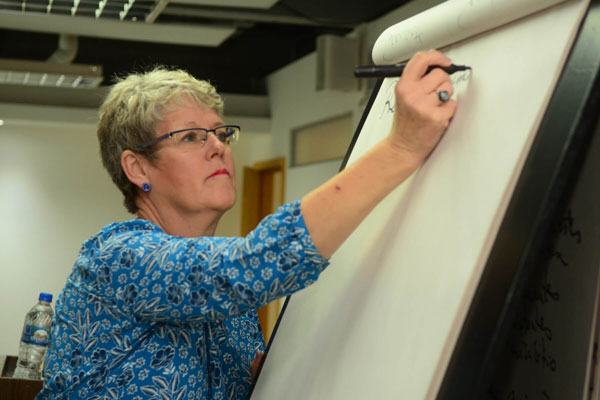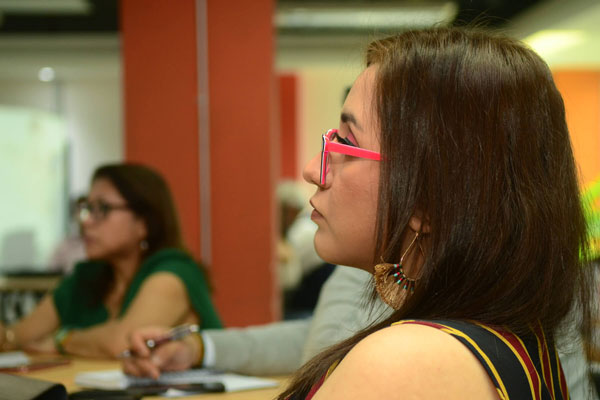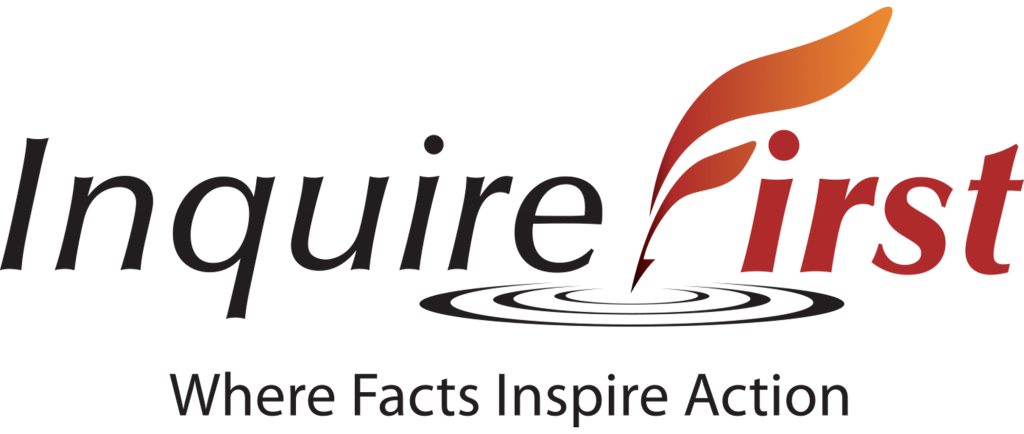
InquireFirst Executive Director Lynne Walker travels to Ecuador to lead investigative reporting workshops



GUAYAQUIL, Ecuador — S. Lynne Walker, President and Executive Director of InquireFirst, traveled to Guayaquil and Quito, Ecuador, in January 2019 to instruct a series of interactive workshops titled “Investigative Journalism in High-Risk Situations.”
In Guayaquil, journalists from newspapers, television networks and online news sites participated in a nine-hour interactive training session conducted by Walker on January 14-15. During the first session – a spirited discussion that engaged the journalists in a dialogue about the “do’s and don’ts” of coverage — Walker focused on techniques for gaining access and finding credible sources for investigative reports, as well as new approaches to interviewing subjects who have delicate information to share.
During the second day of the workshop series, which was conducted in collaboration with the U.S. Consulate in Guayaquil, Walker worked with journalists on organizing complex information and presenting it to audiences in a compelling way. She also conducted a session on security protocols for journalists working in high-risk situations.
Walker instructed a 3-hour workshop in Guayaquil with journalism students at Universidad Casa Grande on interview techniques for investigative reporters.
In Quito, Walker led a 9-hour interactive workshop for mid-career journalists from newspapers, news agencies, television networks and online news sites. She worked with the journalists on new techniques for gaining access to sensitive information, interviewing people who are reluctant to reveal sensitive information, and on the crucial issue of journalist safety.
It is clear that journalists in Quito are still deeply affected by the March 2018 kidnap and murder of El Comercio journalists Javier Ortega and Paúl Rivas and their driver, Efraín Segarra.
The Ecuadoran government said the journalists were kidnapped by a holdout faction of the Revolutionary Armed Forces of Colombia, or FARC, the leftist rebel group that laid down its weapons and became a political party in 2016 after signing a peace accord with the Colombia government.
The murders of the journalists in this nation of 17 million stunned the people of Ecuador and shook their long-held perception of Ecuador as a tiny, peaceful country insulated from the drug violence that has plagued neighboring Colombia.
The journalists who participated in the workshop spoke about the dangers they face, the security measures they’re taking when reporting on dangerous stories and the limits they place on themselves during high-risk coverage.
Walker also participated in a panel discussion at Universidad San Francisco de Quito titled, “Border security, migration and high-risk coverage.” Joining her for the panel discussion were: Iván Flores, former Editor-in-Chief of La Hora; María Belén Arroyo, political editor of Vistazo; and Arturo Torres, former Editor-in-Chief of El Comercio. Arroyo and Torres spoke about their recently released book, “Rehenes,” and the question of journalist security in Ecuador.
The Investigative Journalism in High-Risk Situations workshops resulted in two important takeaways for reporters and their news organizations. First, the reporters said they planned to talk with top directors at their news organizations about implementing safety protocols. Second, they discussed the advantages and challenges of establishing a nationwide journalist network.
The workshop also encouraged journalists to keep striving for excellence in their investigative reporting.
Telerama reporter Leonidas Castro Rodríguez, who is based in Guayaquil, said that Walker’s workshop gave him clarity “about ideas such as focusing on research and sources in order to assemble the information puzzle” and he said it also made him aware “of safety recommendations that must be taken and how to identify when there are risks.”
“It was very useful to learn the experiences of a very experienced journalist who gave us her knowledge in a clear and didactic way,” Castro said.
Another reporter wrote, “I’m a young journalist and I’ve been covering difficult subjects for a relatively short time. I think the workshop with Lynne inspired me. It has motivated me to try to cover complex issues with a little less fear.”

 Pablo is the founder of
Pablo is the founder of